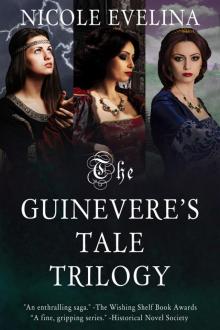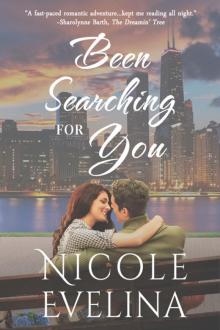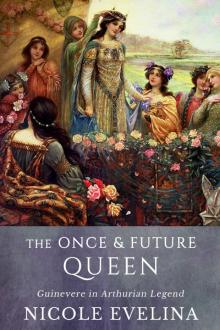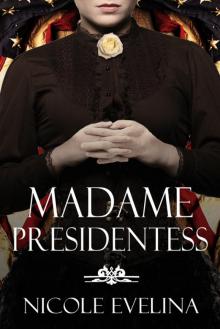- Home
- Nicole Evelina
Madame Presidentess
Madame Presidentess Read online
Madame Presidentess
Nicole Evelina
© 2016 Nicole Evelina
This is a work of historical fiction using well-known historical and public figures. Excerpts from speeches, sermons and writings, newspaper clippings, courtroom testimony, and, where possible, quotes are real, taken from archives, published compendiums, and public documents. All other incidents and dialogue are products of the author’s imagination and are not to be construed as real. Where real-life historical or public figures appear, the situations, incidents, and dialogues (except for the above-mentioned exceptions) concerning those persons are entirely fictional and are not intended to change the entirely fictional nature of the work. In all other respects, any resemblance to persons living or dead is entirely coincidental.
All rights reserved. This book or any portion thereof may not be reproduced or used in any manner whatsoever without the express written permission of the author, Nicole Evelina, or the publisher, Lawson Gartner Publishing, except for the use of brief quotations in a book review.
Lawson Gartner Publishing
PO Box 2021
Maryland Heights, MO, 63043
www.lawsongartnerpublishing.com
ISBNs
978-0-9967632-0-2 (print)
978-0-9967631-9-6 (e-book)
Library of Congress Control Number: 2015959293
Editor: Cassie Cox, Joy Editing
Cover Design: Jenny Quinlan, Historical Editorial
Layout: The Editorial Department
1. Fiction 2. Historical Fiction 3. Women 4. Politics
CONTENTS
PART ONE: The Little Queen
Chapter One
Chapter Two
Chapter Three
Chapter Four
Chapter Five
Chapter Six
Chapter Seven
Chapter Eight
PART TWO: Future Presidentess
Chapter Nine
Chapter Ten
Chapter Eleven
Chapter Twelve
Chapter Thirteen
Chapter Fourteen
Chapter Fifteen
Chapter Sixteen
Chapter Seventeen
Chapter Eighteen
Chapter Nineteen
Chapter Twenty
Chapter Twenty-One
Chapter Twenty-Two
Chapter Twenty-Three
Chapter Twenty-Four
Chapter Twenty-Five
Chapter Twenty-Six
Chapter Twenty-Seven
PART THREE: Mrs. Satan
Chapter Twenty-Eight
Chapter Twenty-Nine
Chapter Thirty
Chapter Thirty-One
Chapter Thirty-Two
Chapter Thirty-Three
Chapter Thirty-Four
Chapter Thirty-Five
Chapter Thirty-Six
Afterword
Glossary
Author’s Notes
To all Incarnate Word Academy girls—past, present, and future.
Victoria was a woman before her
time and would have fit right in with us.
Speak your truth, dare to be the first, and
never doubt your strength or abilities.
Praised be the Incarnate Word. Forever. Amen!
“The truth is I am too many years ahead of this age… and the unenlightened mind of the average man.”
—Victoria C. Woodhull
“For Victoria, the fight for women’s equality was not simply a matter of gaining access to the ballot box—it was a matter of winning the much more basic right of self-ownership.”
—Mary Gabriel, Notorious Victoria, p. 3
APRIL 1853
HOMER, OHIO
By the time I was three, I had learned to fear the dark—that was when Pa came home smelling of sharp, unpleasant odors and vented his day’s worth of rage on us. By five, I’d accepted that no amount of pleading or tears would stay an angry hand. At seven, the creak of my father’s footfall on the rotting boards of our ramshackle house still made me shake.
But that wasn’t what roused me from sleep on a blustery spring night. Somewhere in my dreams, I thought I heard my name being called. I woke, not fully aware of where I was but knowing something was not right. The air, while tinged with the ashy scent of a banked coal fire and the sourness of unwashed hair and sweaty bodies, held another heavier odor. Wood smoke. Acrid traces tingled in my nose, tickling my throat.
The house was on fire. I leaped from bed and slid, in my stocking feet, on the wooden floor as I hurriedly woke my siblings.
“Wake up, all of you. Wake up!” My cries were enough to rouse my elder brother and sister, but the younger ones slept on. I picked up Tennie and handed her to Polly. “Maldron, take Utica and get outside, all of you. I’ll find Ma.”
I rushed into my parents’ tiny bedroom, expecting to find her asleep, but the room was empty, bedcovers askew.
“Oh, Ma, this is not the time for one of your nocturnal vigils,” I said to myself as I slipped into my shoes and threw a ratty cloak over my shoulders.
I barely heard the rattle of the loose porch stairs as I bounded down them toward the orchard behind our house. There, amid blooming apple trees nearly bent double by the howling wind, was my mother, arms raised in prayer, face turned toward heaven, swaying to and fro like a charmed snake, and muttering her prayers to God.
As I drew closer, I could make out her ecstatic chanting. “Glory, glory, Jesus, Jesus. Save us from our sins. Save this bedeviled town. Glory, glory, Jesus, Jesus.”
The last time I interrupted her prayer, Ma had beat me so badly my eyes were blackened for a week. But surely she would understand when our home was in danger, wouldn’t she? Hesitantly, I approached her, as fearful as though I sought to tame a wolf. Her eyes were open, but they were glassy, seeing things visible only to her blessed inner eye.
As gently as I could, I laid a hand on her arm. She didn’t respond or look my way but continued to chant and sway.
I shook her slightly. “Ma, it’s Victoria. I need you to come back to me. Please, Ma, it’s important.”
A second shake got through to her. She lowered her head, eyes turning hard as flint, and smacked me across the cheek. “Haven’t I told you not ta bother me when I’m talkin’ to the spirits? Now you gone an’ scared ‘em off.” She shook her head, her expression making her disappointment clear.
“Ma, I had to. The house is on fire!” I turned, pointing back at the little one-story wooden shack, expecting to see orange flames shooting from the windows or the whole thing smothered in a veil of black smoke.
But there was nothing. The house sat as still as any other night, taking the licks the wind dealt it with the stoicism of a bare-knuckle boxer.
I couldn’t understand. I knew I’d smelled smoke. I looked at my mother, eyes imploring her to believe I was telling the truth.
She huffed. “Fire, eh?” She pinched my ear so quickly I didn’t have a chance to defend myself. “I’ll teach you not to tell lies.”
She dragged me back toward the house, pausing only when Maldron came running toward us.
“Fire brigade is comin’ this way.” He pointed down Main Street, where in the distance, the team of horses was crossing the town’s only intersection, wagon rumbling like thunder. “Tennie says it’s not the house but the mill that’s afire.”
At the mention of my clairvoyant younger sister, Ma’s face crumpled. “Tennie’s never wrong in her seeings. Oh, Lord in Heaven, that mill was gonna be our nest egg! Now what will we do?” She wailed loudly.
I supported her right shoulder while Maldron took her other, and the rest of the family joined us in solemn procession to a bridge that overlooked the mil
l, which was not far from the house. Maldron and Polly ran to take their places in the bucket brigade that was fighting a losing battle as the wind carried the flames up to the roof and into the wheel itself. If the inferno wasn’t contained soon, it would consume the very bridge on which we stood.
“What a time for your pa to be gone. This never would ‘ave happened if he were here.”
I didn’t see what he could have done to prevent or stop the situation, but his help wouldn’t have been unappreciated. “They need more hands. Ma, please let me go help. I’m fourteen, hardly a child to be trod underfoot.”
But she would hear nothing of it. Shaking her head, she draped her cape around the three of us, a mama duck protecting her brood. “I gave the Lord three of my girls already. He won’t be gettin’ you too.”
Smoke and flames reached toward the heavens as we stood silently, watching as the townspeople tried in vain to save what little livelihood we had left. Years earlier, we had lost our land and all our money. Now this. It seemed as though our trials would never end.
Mama swayed again, humming between her prayers. “Oh merciful Father, send relief, or we shall perish.”
Helpless to do anything else, we joined in. But our prayers were in vain. Despite the heavy rain the wind blew in, by dawn, the whole town knew we had suffered a total loss.
Not wishing to be the subject of talk behind her back, Ma insisted we accompany her to the general store—the town’s central gossip hub—while she replenished some of the supplies the fire had consumed. Even early on a Thursday morning, the store was full of women and children eager to see what goods had come in on the latest wagon from Mount Vernon. All eyes turned to us as soon as we entered.
Louisa Oldacre, a tall, thin blond woman always clad in the latest fashion and a descendant of one of the town’s founding families, was at my mother’s side before the proprietor, Mr. Yoakam, could even wish us good morning. “Oh my dear, you must be so exhausted. What a terrible night for your family.” She clucked her tongue and plucked a basket from a shelf. “Here, let me help you.”
As she led my mother away, I wandered over to the dry goods area, intending to admire the colorful ribbons and buttons we could never afford. The eyes of my friends and their mothers were weights on my back as I walked. As I stood in front of the rows of silken spools, imagining how I could dress up my old bonnets if Ma would spare but a coin, snippets of conversation reached me, each one worse than the other.
“…couldn’t afford the mortgage…”
“…family of lying thieves…”
“Wouldn’t surprise me if it was all a sham,” Mrs. Goodman said in hushed tones to Mrs. Scott as they passed behind me. “Did you know Buck just took out insurance on the mill? I don’t know about you, but that seems a mite suspicious to me.”
“Especially since he’s conveniently missing,” Mrs. Scott replied. “Postmaster or no, I never trusted that man.”
I turned on my heel so I was facing them, cheeks burning. “That’s my pa you’re talkin’ about.”
“When he treats this town and its residents with respect, I will start respecting him,” Mrs. Goodman said primly before grabbing my elbow and marching me up to the counter, where my mother stood haggling with Mr. Yoakam. “Anne, you need to teach your daughter how to speak to her elders. She sassed us just now.”
“Apologize, Victoria.”
“But Ma, they said Pa––”
“Do as you’re told.” She slapped me upside the head.
“I’m sorry,” I mumbled, staring at my feet.
Once the women were gone, I set my attention on my mother’s conversation with Mr. Yoakam.
“If you have any more of Buck’s elixir, I can give you your order in trade,” Mr. Yoakam said. “Otherwise, I can only allow you to take what you have the coin for.”
“But we lost Buck’s latest batch of tonic in the fire. He stored his surplus in there.”
“Which is probably why the fire spread so fast. I’m sorry, Anne. We’ve been over this before. I can’t offer you any more credit until you pay your outstanding bill. There’s nothing more I can do.”
My mother looked near to tears. Reluctantly, she began separating the staples like flour and butter from the more luxurious goods such as tea and meat.
Louisa Oldacre, apparently having witnessed the exchange, swept over to my mother’s side. “Now, Mrs. Claflin, what are you doing? Stop that right now. Mr. Yoakam, put that on my credit.”
“Oh no, I could never—” my mother protested.
“Nonsense. It’s the least I can do given your recent misfortune.”
My mother was not one to accept charity without a fuss, but this woman’s unexpected largess had left her speechless. She pressed a hand to her mouth, but I didn’t miss that her lower lip trembled. “Thank you,” she finally managed.
I signaled to Maldron and Polly, who were outside watching the young ones, to come inside and help carry the wares. When we were all loaded up like pack mules, we started back across the street to our house. But Tennie and I lagged behind as she dragged her feet and wearily begged me to carry her even though my arms were full of sacks of dried beans. I set them on the sidewalk outside the store and hoisted her into my arms. Behind me, Mrs. Scott and Louisa resumed their gossip.
“That was mighty kind of you, Miss Oldacre. You turn coat on your opinion of the Claflins?”
“No, sugar. But I do have a plan. Come on inside, and I’ll tell you all about it.”
Sunday morning was always my favorite time of the week. It was special because every one of us children had to wash, put on our best clothes, and comb our hair before presenting ourselves to the Lord at church. But better than that, Ma and Pa were on their best behavior; it was the one morning of the week we were certain not to receive the switch or get a tongue lashing for some real or imagined infraction. Ma hummed as she prepared the picnic we would eat after services, and even Pa was known to occasionally grace us with a smile as he cleaned the dirt from under his fingernails.
With Pa away, visiting my eldest sister in Mt. Gilead, Maldron and Polly headed our straggling parade to the church. Ma brought up the rear, ensuring Utica kept up amid her spinning, skipping, and chasing butterflies and Tennie didn’t stop to pick up any wayward turtles or toads. The reverend still looked at Tennie askance from her last gift.
When the tall white steeple towered over us and the church doors were in sight, Maldron halted. The rest of us gathered around him, straining to see why he didn’t head straight inside to secure our usual seats midway up the aisle to the left of the altar.
Barring entrance to the church was a tall bay mare hitched to a wagon loaded with supplies. Bolts of muslin lay next to sacks of wheat and corn, soft packing for the stacks of crockery, tin dishes, and two oil lamps cradled on top. A barrel of salt fish was tied to one corner, and the butt of a rifle stuck out from between piles of clothing for men and women.
“Who’s leaving town?” Ma asked when she finally caught up to the rest of us.
It was early in the season to be traveling yet; next month was when most wagon trains set off, but it wasn’t inconceivable some family had decided to get an early start.
The assembled crowd shifted restlessly, as if no one dared speak.
“I’m afraid you are.” Mayor Tom Trumbull stepped forward, holding his hat in his hands. “It pains me to say this, but the town of Homer, Ohio, no longer welcomes you and your family, Mrs. Claflin. We must ask you to leave.”
“What?” my mother cried. “Why? Have we not been good citizens these last twenty years? Why do you abandon us now?”
“Do not play for sympathy, Mrs. Claflin. Your husband is a well-known crook and a swindler. All assembled here know the truth—that he was run out of town by these very same men for defrauding them of their fortunes. Now, with the unfortunate disaster at the mill, I’m afraid we can tolerate no more.”
I looked up at Ma. “Don’t they know Pa is just visiting Maggie? He’
ll be back any day now.” I said this last to the mayor in case he hadn’t heard.
He regarded me stonily and crossed his arms. “Is that what you told your children? It’s a sin before God to tell lies—even if it is to protect the innocent.”
My heart thudded. Could the mayor possibly be telling the truth? Had Pa really been chased out of town like an outlaw by men with pitchforks who’d threatened his life? I’d seen it done before. But those men robbed banks. My father sold medicines and traded horses. No, it didn’t add up.
Louisa Oldacre swept to the fore, her bright smile a jarring contrast to the grim scene playing out around us. “Please don’t think us too unkind. Our church did hold a fundraiser to purchase your provisions for the journey. Added to those I secured for you late last week, you should have plenty to take with you to meet up with your husband.”
Polly sneered at Louisa. “You think this makes you a good Christian, don’t ya? Never mind all the ill you’ve spoke of us. A little charity washes away your sins? Well, that’s horseshit.”
I expected Ma to reprimand Polly for her coarse language, but her attention was elsewhere.
Ma raised her hands to the sky and recited, “‘Blessed are those who are persecuted in tha’ name of the Lord for theirs is the kingdom of heaven.’ That’s what we are. One of my neglectful children left a lamp burning in the mill. The howlin’ wind overturned it and set the whole thing blazin’. We was helpless to stop it, ‘specially without Buck, yet you stand here afore God and everybody callin’ us thieves.” She put an arm around Maldron. “We got our pride, you ken. We don’t want to live nowheres that don’t want us. Come on, children.”
She motioned for us to climb into the wagon. Obediently we did so, though I grasped at my friends’ hands, hugging them to me, tears pouring down my face. This was my home, the town where I’d been born, and while I was not popular, I had a few close acquaintances, and I was loathe to let them go.
But Mama’s pride would brook no resistance. Without another word, she urged the horse forward, and the wagon moved. Slowly, we rumbled away from the church, away from the only home I had ever known. Once we had stopped back by the house and packed our few belongings into the cart, we said farewell to the town of Homer forever.

 Guinevere's Tale
Guinevere's Tale Been Searching For You
Been Searching For You The Once and Future Queen
The Once and Future Queen Madame Presidentess
Madame Presidentess